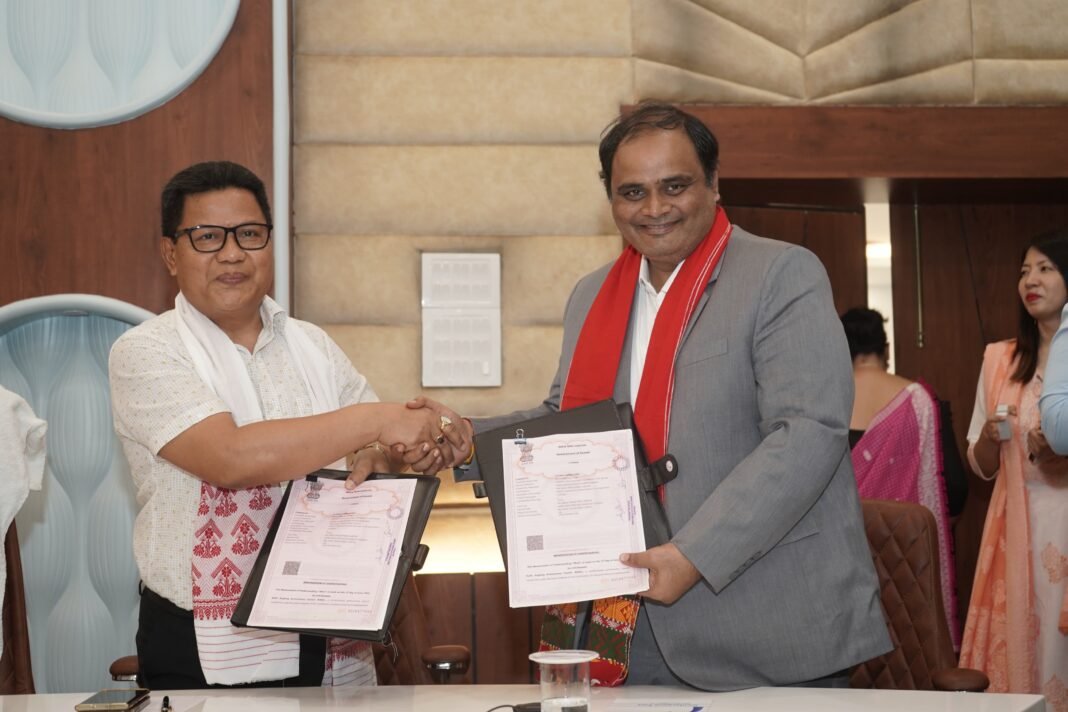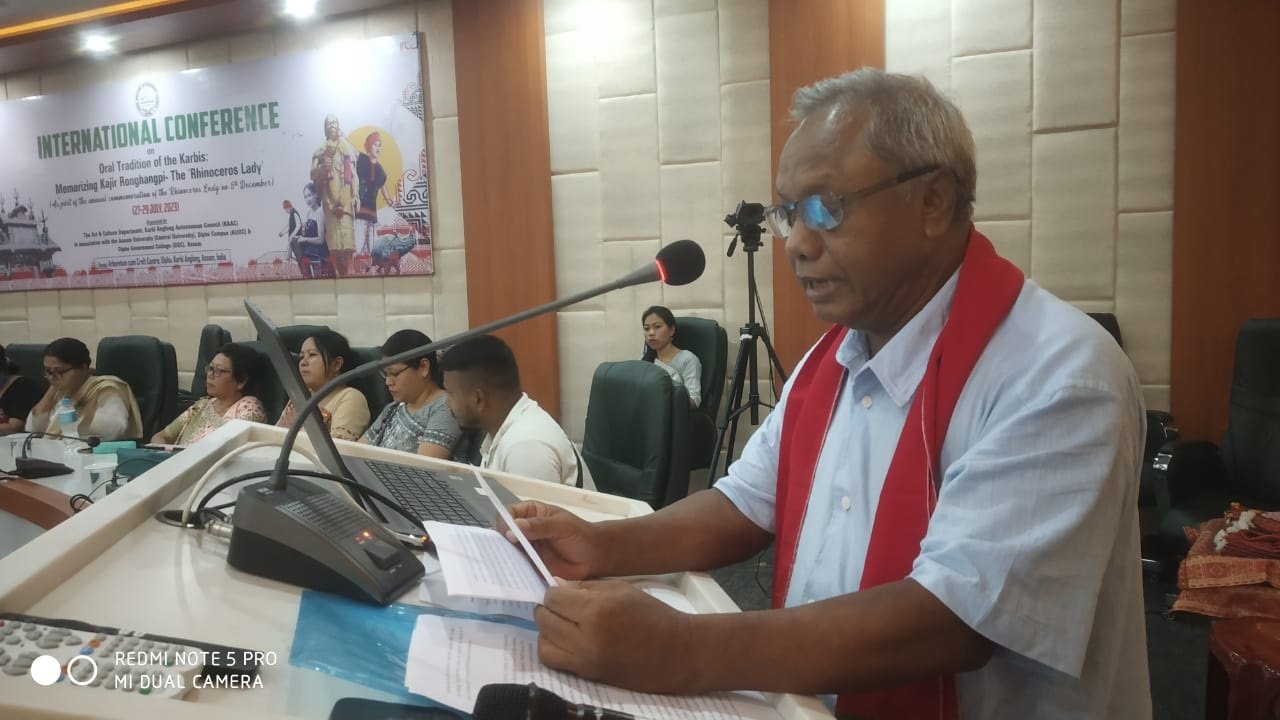HT Correspondent
KHERONI, June 12: In a significant step towards promoting green energy and boosting rural development, the Karbi Anglong Autonomous Council (KAAC) and Reliance Industries Limited (RIL) on Thursday signed a Memorandum of Understanding (MoU) to establish an Integrated Compressed Bio-Gas (CBG) project within the jurisdiction of the council.
The formal signing ceremony took place at 10:00 AM at the Conference Hall of the Kajir Ronghangpi Memorial Guest House in Taralangso village, near Diphu.
The event witnessed the presence of Assam Cabinet Minister Ranoj Pegu, KAAC Chief Executive Member Tuliram Ronghang, Member of Parliament Amarsing Tisso, MLAs Darsing Ronghang (Howraghat) and Bidyasing Engleng (Diphu), all Executive Members and Members of the Autonomous Council, the Principal Secretary of KAAC, MACs, Board Chairpersons, and other senior officials.
Reliance Industries Limited was represented by its Vice Chairman, Vamsee Krishna Jyothi, along with other top executives of the company.
Before the MoU was signed, Deputy Secretary of KAAC Ibon Teron outlined the administrative framework of the agreement.
He stated that the council will allot 4,000 acres of land for the project, and in return, Reliance Industries will provide an annual revenue of ₹6.6 crore to the council.
A 90-day clause has also been incorporated, allowing either party to withdraw from the agreement if necessary.
The MoU includes a comprehensive plan for the upliftment of the rural economy and the creation of employment opportunities in Karbi Anglong and West Karbi Anglong.
As part of the initiative, local cultivators will be encouraged to grow Napier grass on their lands, which Reliance will procure through a buy-back arrangement.
Farmers may earn approximately ₹30,000 per acre annually through this system.
Speaking at the event, RIL Vice Chairman Vamsee Krishna Jyothi assured that the company is committed to fostering local employment and supporting farmers while ensuring the ecological balance of the region is maintained.
He expressed optimism about the project’s potential to bring substantial socio-economic benefits to the area.
Later, KAAC officials held discussions on the feasibility and benefits of cultivating Napier grass—also known as elephant grass—as a sustainable raw material for the proposed Bio-CNG plant.
Given its rapid growth, high biomass yield, and suitability for anaerobic digestion, the grass is considered an ideal renewable energy resource.
The collaboration between KAAC and Reliance Industries marks a milestone in the region’s development journey.
The Integrated CBG project is expected to not only boost the local economy but also promote sustainable practices and green energy solutions in Karbi Anglong.












